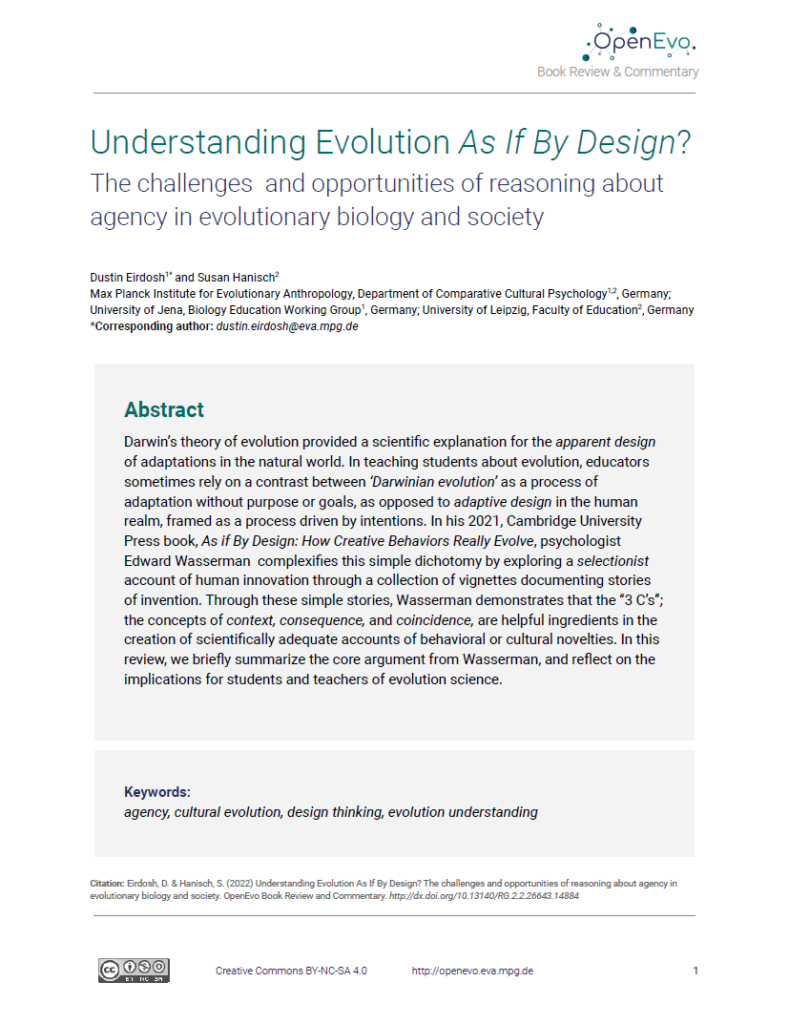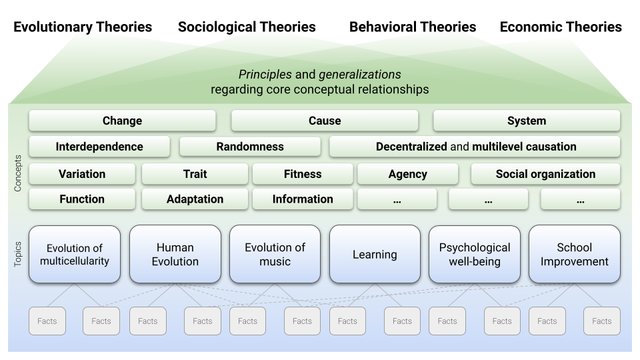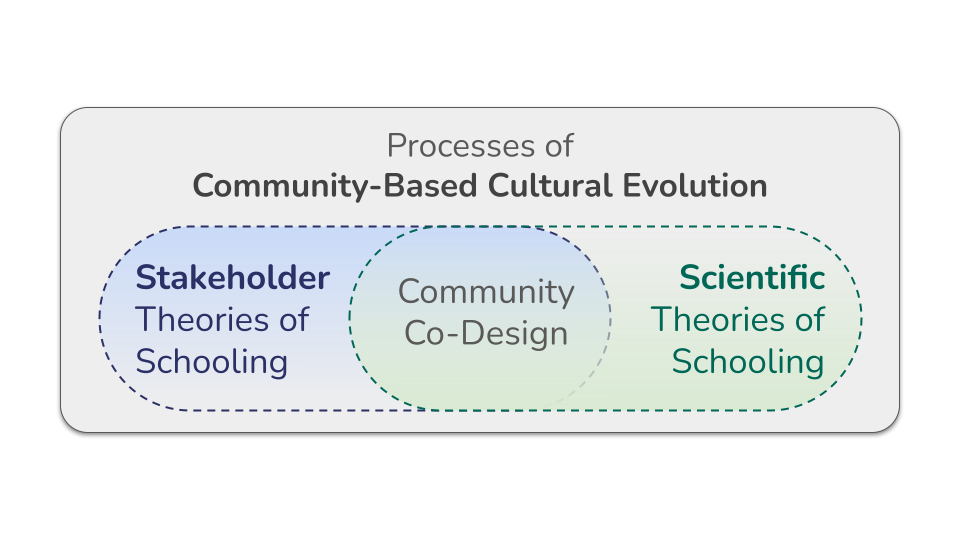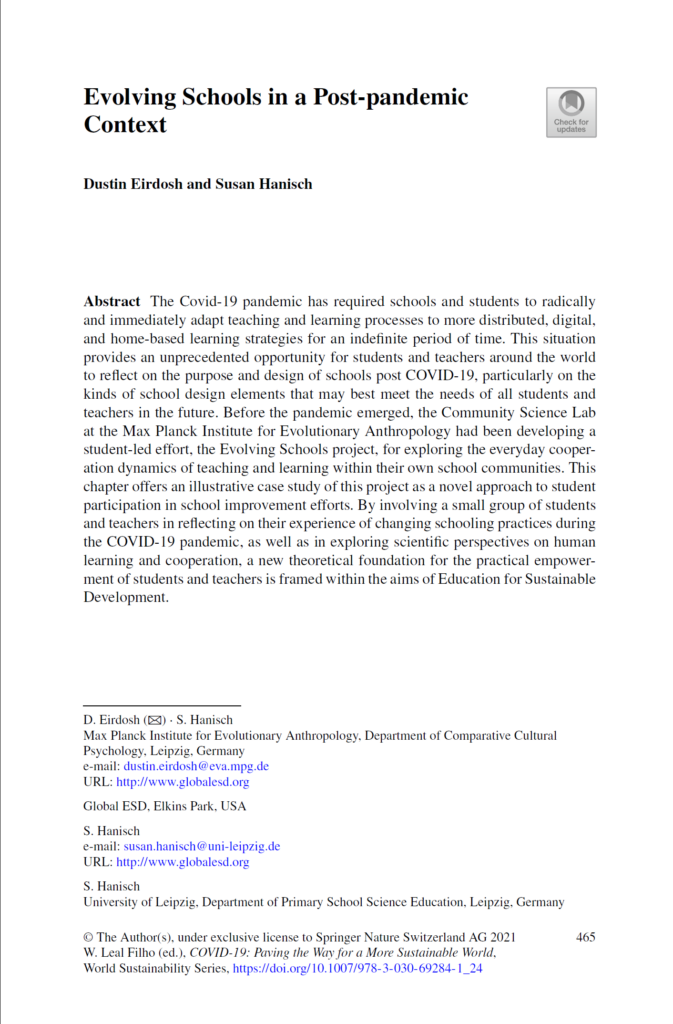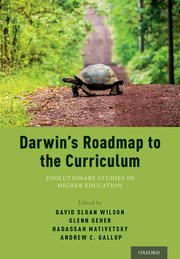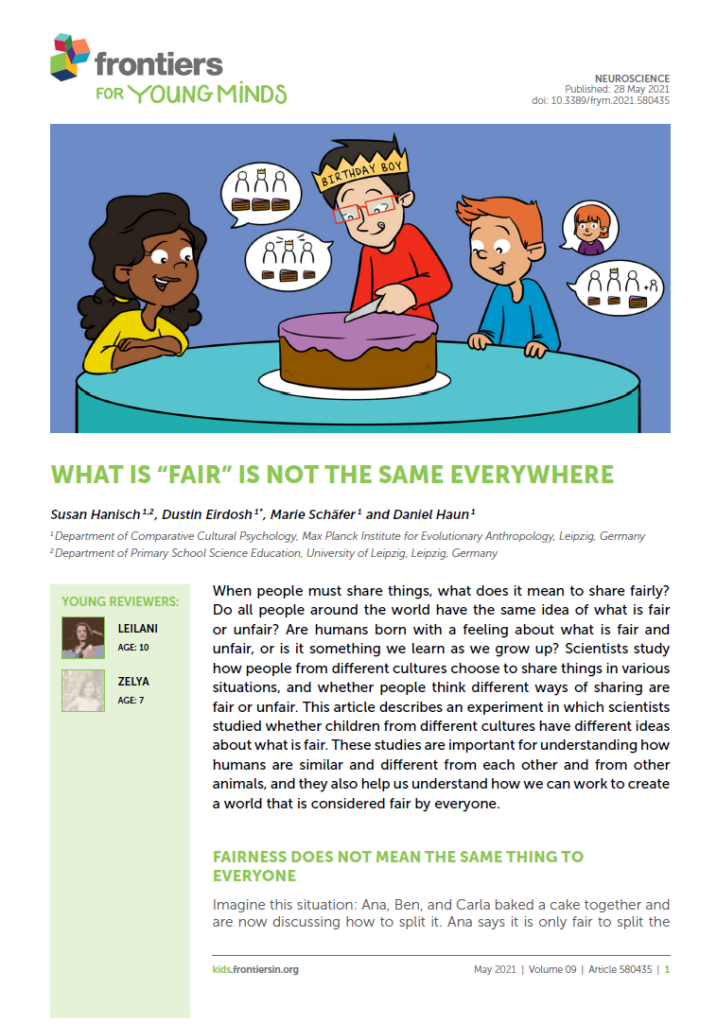Hanisch, S. & Schneider, D.P. (2025). Menschliches Verhalten und Bildung für nachhaltige Entwicklung – Ein Versuch der didaktischen Reduktion. Preprint
In diesem Artikel stellen wir Erkenntnisse in der Weiterentwicklung und Umsetzung des Modulkonzepts „Menschliches Verhalten und nachhaltige Entwicklung“ vor.

